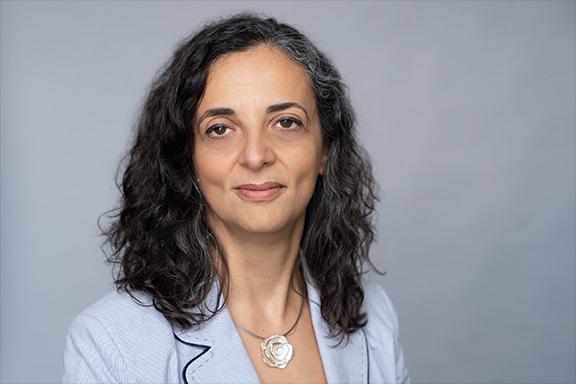
Credit: UTHSC
Memphis, Tenn. (March 23, 2021) – The University of Tennessee Health Science Center and the University of Alabama at Birmingham (UAB) Minority Health and Health Disparities Research Center have received a $2.39 million grant to create the Emotional Well-being and Economic Burden Research Network (EMOT-ECON).
Many patients suffering from the effects of COVID-19 have been left struggling with ways to pay for their treatment. However, those financial concerns also affect patients seeking cancer treatment, emergency care, surgery, and more. Furthermore, little attention has been given to how the financial consequences of a disease affect a person’s emotional well-being.
This is partly due to the lack of dedicated researchers in this field.
“We not only need more researchers, but we need researchers from different fields of study to truly understand this topic in depth,” said Maria Pisu, PhD, professor in the Division of Preventive Medicine at UAB.
Dr. Pisu, along with Michelle Martin, PhD, director of the Center for Innovation in Health Equity Research at UTHSC, and professor in UTHSC’s Department of Preventive Medicine, will collaborate to understand the relationships between financial burden, emotional well-being, and broader health outcomes.
EMOT-ECON will include researchers from different disciplines, patients and caregivers, health care providers, and others with personal or professional interest and experience with certain research topics.
Dr. Pisu and Dr. Martin’s team includes two physician scientists, David Schwartz, MD, chair of UTHSC’s Department of Radiation Oncology, and Margaret Liang, MD, assistant professor in the Department of Obstetrics and Gynecology at UAB. Health communications expert Yu-Mei Schoenberger, PhD, assistant professor in the Division of Preventive Medicine at UAB, is also part of the team.
The network’s pilot project program aims to not only increase the number of studies in EMOT-ECON research, but also attract new people to the field.
“Our work will advance understanding of financial burden and emotional well-being and generate the body of knowledge necessary for developing interventions that minimize the impact of financial burden and enhance emotional well-being,” Dr. Martin said.
Research patient advocate and President of the West Valley Ovarian Cancer Alliance, Laurel J. Pracht, applauds their efforts.
“It is past time to recognize the financial burden patients and caregivers bear to receive/afford treatment, not only of cancer, but also chronic diseases,” Pracht said. “Naturally, it impacts a patient’s quality-of-life as well as well-being.”
###
As Tennessee’s only public, statewide, academic health system, the mission of the University of Tennessee Health Science Center is to bring the benefits of the health sciences to the achievement and maintenance of human health through education, research, clinical care, and public service, with a focus on the citizens of Tennessee and the region. The main campus in Memphis includes six colleges: Dentistry, Graduate Health Sciences, Health Professions, Medicine, Nursing and Pharmacy. UTHSC also educates and trains medicine, pharmacy, and/or health professions students, as well as medical residents and fellows, at major sites in Knoxville, Chattanooga and Nashville. For more information, visit uthsc.edu. Find us on Facebook: facebook.com/uthsc, on Twitter: twitter.com/uthsc and on Instagram: instagram.com/uthsc.
Known for its innovative and interdisciplinary approach to education at both the graduate and undergraduate levels, the University of Alabama at Birmingham, a part of the University of Alabama System, is the state of Alabama’s largest employer and an internationally renowned research university and academic medical center; its professional schools and specialty patient-care programs are consistently ranked among the nation’s top 50. Learn more at http://www.
Media Contact
Amber Carter
[email protected]




